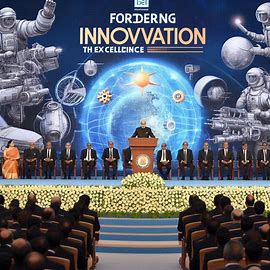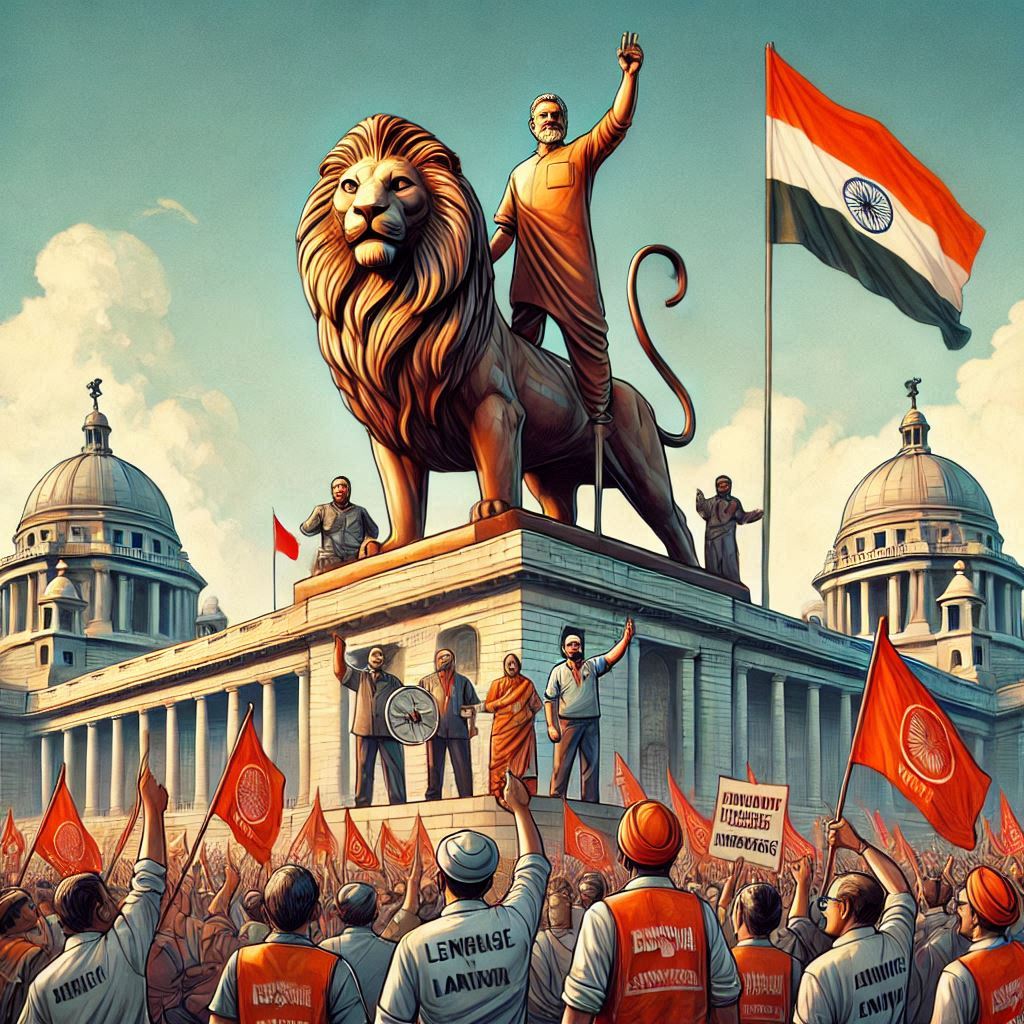Empowering Public Service Commissions: Backbone of a Progressive Nation

Empowering Public Service Commissions: Backbone of a Progressive Nation. The 25th National Conference of Chairpersons of State Public Service Commissions, inaugurated in Bengaluru, serves as a pivotal event in India’s journey towards robust governance. The Vice-President’s address at this silver jubilee celebration sheds light on the critical role these commissions play in nation-building. This article delves into the essence of the Vice-President’s speech, emphasizing the transformational potential of public service commissions in shaping India’s futur
Empowering Public Service Commissions: Backbone of a Progressive Nation
The Vital Role
Empowering Public Service commissions are the foundation of India’s administrative framework. They are entrusted with the monumental task of recruiting personnel who uphold the principles of transparency, meritocracy, and accountability. As the Vice-President aptly stated, these bodies are the “spinal strength of Indian democracy.” Their function transcends mere recruitment; they ensure that the administrative machinery operates with integrity and efficiency.
Key Responsibilities:
- Recruitment Based on Merit: Eliminating nepotism and favoritism.
- Ensuring Transparency: Building public trust in governance.
- Promoting Accountability: Aligning public services with constitutional values.
Self-Audit: A Path to Excellence
Self-audit emerged as a central theme in the Vice-President’s address. Organizations, including public service commissions, must introspect regularly to remain relevant and effective. Self-audit fosters a culture of continuous improvement and accountability.
Why Self-Audit Matters:
- Prevents Complacency: Regular introspection avoids stagnation.
- Enhances Credibility: Transparent processes boost public confidence.
- Encourages Innovation: Identifying gaps leads to creative solutions.
Meritocracy: The Cornerstone of Bureaucracy
The Vice-President emphasized that merit should be the sole criterion for recruitment in bureaucracy. A merit-driven system ensures that the best minds contribute to governance, enabling effective policy implementation and public service delivery.
Key Insights:
- Eliminating Jobbery: Meritocracy counters the “robbery of merit” through nepotism.
- Empowering Governance: Skilled bureaucrats translate vision into actionable outcomes.
- Building Trust: A merit-based system fosters equality and fairness.
The Role of Technology in Governance
Technology plays a transformative role in ensuring transparency and accountability. Public service commissions must leverage digital tools to streamline processes and enhance efficiency.
Technological Advancements:
- Online Recruitment Portals: Simplifying application and selection processes.
- Data Analytics: Identifying trends and improving decision-making.
- E-Governance Initiatives: Enhancing accessibility and reducing delays.
Addressing Challenges in Governance
India’s aspirations of becoming a developed nation by 2047 hinge on addressing significant governance challenges. Public service commissions must be equipped to tackle these issues proactively.
Pressing Challenges:
- Mounting Expectations: Citizens demand more efficient services.
- Staggering Problems: Complex issues require innovative solutions.
- Political Divisiveness: A harmonious political climate is essential for progress.
Proposed Solutions:
- Mission-Mode Execution: Bureaucracy must operate with zeal and clarity.
- Collaborative Governance: Bridging gaps between various governmental levels.
- Focus on Inclusivity: Promoting unity in diversity to harness India’s full potential.
Leadership and Vision: Lessons from History
The speech drew inspiration from the visionary leaders of India’s past, including Sardar Patel and Dr. Rajendra Prasad. Their unwavering commitment to building a strong administrative framework remains relevant today.
Key Takeaways:
- Independent Commissions: Shielding commissions from executive influence ensures unbiased functioning.
- Visionary Leadership: Leaders must prioritize national interest over partisan agendas.
- Consensus Building: Dialogue and deliberation are essential for resolving contentious issues.
Aiming for Viksit Bharat 2047
India’s goal of becoming a developed nation by 2047 requires a collective effort. Public service commissions must align their strategies with this vision, focusing on nurturing human resources and driving innovative policies.
Strategic Priorities:
- Skill Development: Preparing a future-ready workforce.
- Equitable Growth: Bridging socio-economic disparities.
- Global Competitiveness: Enhancing India’s position on the world stage.
Fostering Unity in Diversity
India’s strength lies in its unity amid diversity. The Vice-President highlighted the importance of maintaining harmony and inclusivity in governance.
Building an Inclusive Nation:
- Promoting Harmony: Countering divisive tendencies.
- National Interest First: Rising above political differences.
- Civilizational Values: Upholding India’s ethos of unity and inclusivity.
Conclusion: Strengthening the Steel Frame of India
The 25th National Conference of Chairpersons of State Public Service Commissions serves as a reminder of the pivotal role these bodies play in India’s progress. As the Vice-President eloquently put it, public service commissions are the architects of our administrative edifice. By embracing meritocracy, leveraging technology, and fostering inclusivity, they can drive India toward its goal of Viksit Bharat 2047.
Let us work collectively to strengthen this steel frame, ensuring that it remains resilient and adaptable in the face of evolving challenges. Together, we can build a brighter, more prosperous future for our nation.












